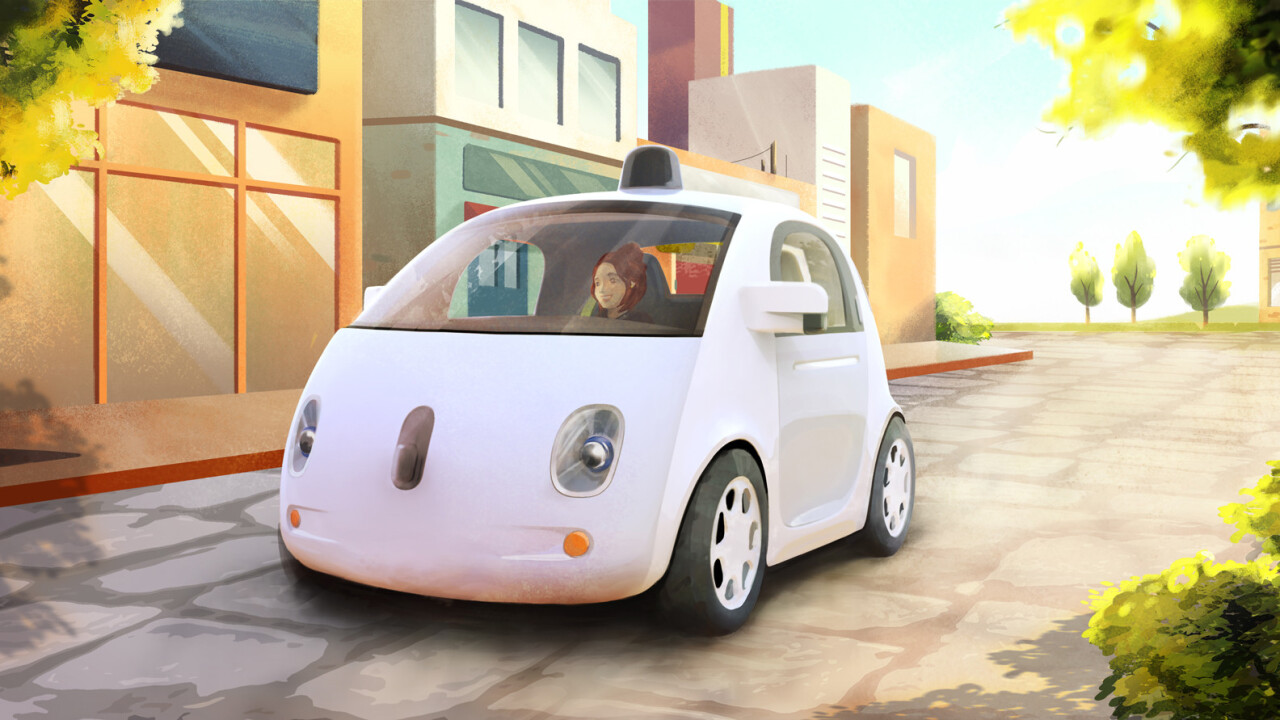
Google co-founder Sergey Brin introduced the company’s Self-Driving Car Project at the Code Conference yesterday. The two-seater Google-x prototype is cuter then a pile of sleeping kittens and it’s set to destroy an entire industry because it knows you better than anyone else.
When Brin showed a photo of the first prototype of the driverless car project, the car seemed less like a robot car and more like a panda that’s happy to drive you. But behind the cutesy face is a transportation device tied into the brain of Google.
During a call, project director Chris Urmson was quick to point out that the self-driving car is still in its infancy: “While we had some media to show the vision of where we are going, these are really prototypes.” Google won’t speculate on the features of a service that’s still years from being available to the general public. Right now the cars are learning how to drive. But it’s not too far of a leap to expect that soon they’ll be learning about you.
The search giant has a history of products that learn about you. As soon as Google launched Gmail, it began gleaning data about its users. Then came Google Maps, Android, Google+, Google Now. With each new feature tied to your account, the Google brain got smarter about your life. Google Now knows when you’re at work and how long it’ll take to get home based on current traffic. It knows what you buy based on your search history and Google Express purchases. It knows which party you’ll attend on Friday thanks to Calendar. All that knowledge could be driving you around town.
When a taxi pulls up to the curb the first question is, “Where are you going?” When Google launches a fleet of self-driving cars in your town, if it’s tied to Google Now it won’t have to ask. It’ll know you have to be at work in 30 minutes. It’ll know that on Sunday afternoons you head to the market for groceries. And it’ll know that you’re heading to karaoke for Susan’s birthday on Saturday. It’ll know where to go without you searching your phone for an address.
And like all things Google, it’ll learn. The cars could potentially find patterns among customers that use the service all the time. The cars could congregate near users during peak periods. Suddenly waiting seven minutes for Uber or Lyft will be ludicrous. The Google Self-Driving Car will be there in half the time because it already knows you’ll want a ride. Not just you, it’ll know when everyone wants a ride. It’ll know where to be at all times. Because every time you use Google anything, it’ll learn and that information could seep into your rides.
Searching for a recipe that requires salmon? The car could inform you that the market on the way home has salmon on sale and it’ll only add eight more minutes to your trip. It’ll even text your husband or wife to tell them about the delay. Google Music noticed you listen to Kanye West, the car could have the latest album playing when you get in for a night out and surprise, you can buy it at a discount for being a loyal Google Self-Driving Car customer.
The car will be more than a eco-friendly and safer trip around the block. It could be the end of other forms of on-demand transportation. Taxis, Uber, and Lyft can’t compete with the Google hive mind on wheels. Once insurance companies realize that sensor-powered split-second reflexes trump humans, premiums will fall. Lower premiums and zero drivers to pay means cheaper fares.
Urmson envisions a scenario where the cars are serving the elderly unable to drive any longer and those unable to afford traditional taxi services. He wants to know what the long-term benefits of a driverless car will be for people. Right now, it’s all about getting the cars on the road and teaching them. Actual tests on public roads with specially trained passengers are expected by the end of the year.
But there’s the privacy issue. Brin told Walt Mossberg and Kara Swisher that Google cares “very deeply about privacy,” and that “privacy is the expectation that certain personal things stay secret.” If the cars shake out to have the same information as the rest of Google services, there will be some that believe the company is going too far. It’s one thing for the device in your pocket to know your likes and dislikes. It’s another for a potentially random car to have the same data.
Remember you shared this information with Google. The company knows everything about you because you shared that information. I shared my data and I find Google Now’s parsing of that information amazing. I love that it knows what my commute is like and when my flights are taking off. Having a transportation option that knows me sounds like the future. A future where I gladly surrender my information for a ride to Susan’s karaoke birthday bash on Saturday night without having to explain to the driver where the club is located.
A taxi service can’t compete with what Google knows about you. Their only option could be part of the system. To purchase their own fleet of driver-less cars. To be part of the information age. The information age of you.
Get the TNW newsletter
Get the most important tech news in your inbox each week.






